New Jersey Butterfly Club
A chapter of the North American Butterfly Association (NABA)
Spicebush Swallowtail
Papilio troilus
Identification: Very large—about 4.1” (larger than Monarch), Above: Mostly black but with blue on HW and a row of pale (often pale bluish) spots along FW and HW margins. Male has a prominent blue-green “cloud” on the HW and more-prominent FW marginal spots. Both sexes lack pale spot near front edge of FW seen in Black Swallowtail. Below: Mostly black but with blue on HW and 2 rows of orange spots. The inner row has one orange spot missing, replaced by an “arrowhead” of blue scales. (In Black Swallowtail this row is complete.)
NJ Status and Distribution: Resident. Common and widespread throughout.
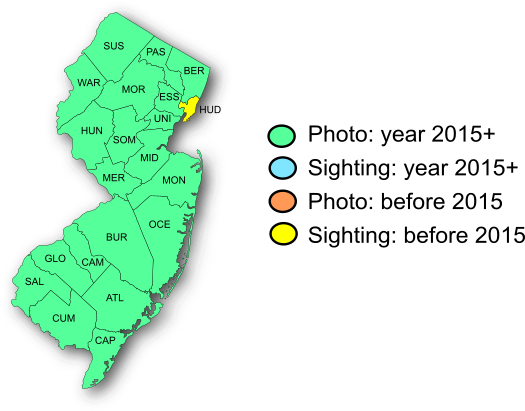
Habitat: Open, sunny, upland fields, wet meadows, and forest edges. Easily attracted to gardens with flowers such as Butterfly Bush, Purple Coneflower, Wild Bergamot, and milkweeds.
Flight Period: Mid-April to mid-October with peaks in late spring (May-early June) and mid-late summer (August). Extreme dates: North Jersey 4/8—10/20; South Jersey 3/28—11/3.
Caterpillar Food Plants: Spicebush (Lindera benzoin), a native shrub of wet woods; and Sassafras (Sassafras albidum), a native deciduous tree of upland forest edges and hedgerows.
Overwintering Stage: Pupa.
Good Locations: Whittingham WMA, Schooley’s Mountain CP, Merrill Creek Reservoir, Willowwood Arboretum, Bamboo Brook Outdoor Education Center, Great Swamp NWR, Kay Environmental Center, Riverwinds Scenic Trail (West Deptford), and Belleplain SF.
Comments: Planting (or not cutting down) Northern Spicebush and Sassafras on your property will almost guarantee you the pleasure of seeing adults in your garden as well as their spectacular larvae.
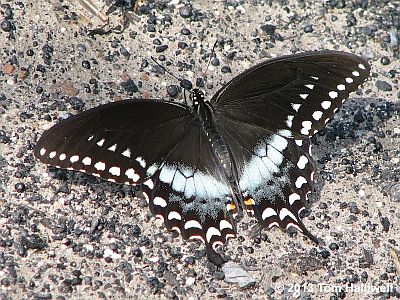
Male, Delaware Water Gap RA, Sussex Co., NJ, 7/24/07.
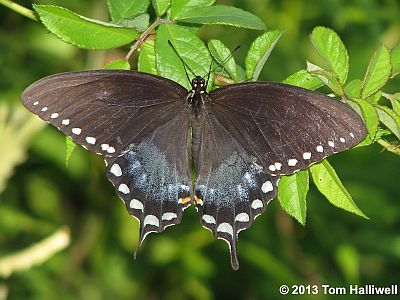
Female, Kittatinny Valley SP, Sussex Co., NJ, 7/12/10.
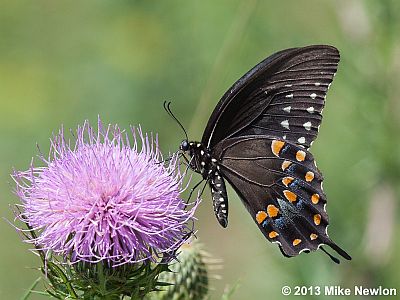
Watchung Res., Union Co., NJ, 8/12/12, on Field Thistle.
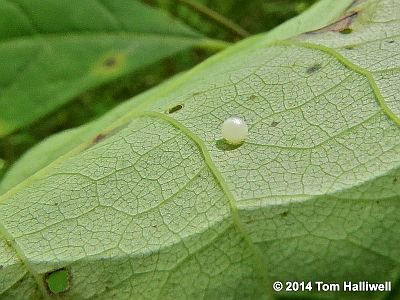
Egg on Northern Spicebush.
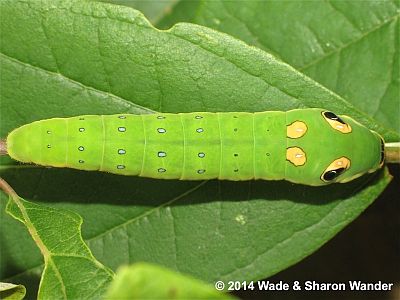
Late instar on leaf of Sassafras.
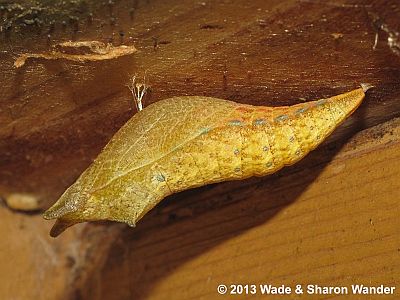
Pupa.
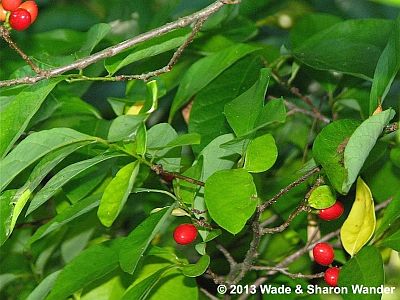
Northern Spicebush in fruit. This common shrub is one of 2 main caterpillar food plants for Spicebush Swallowtail.
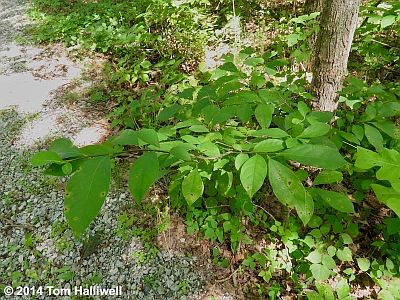
Northern Spicebush.